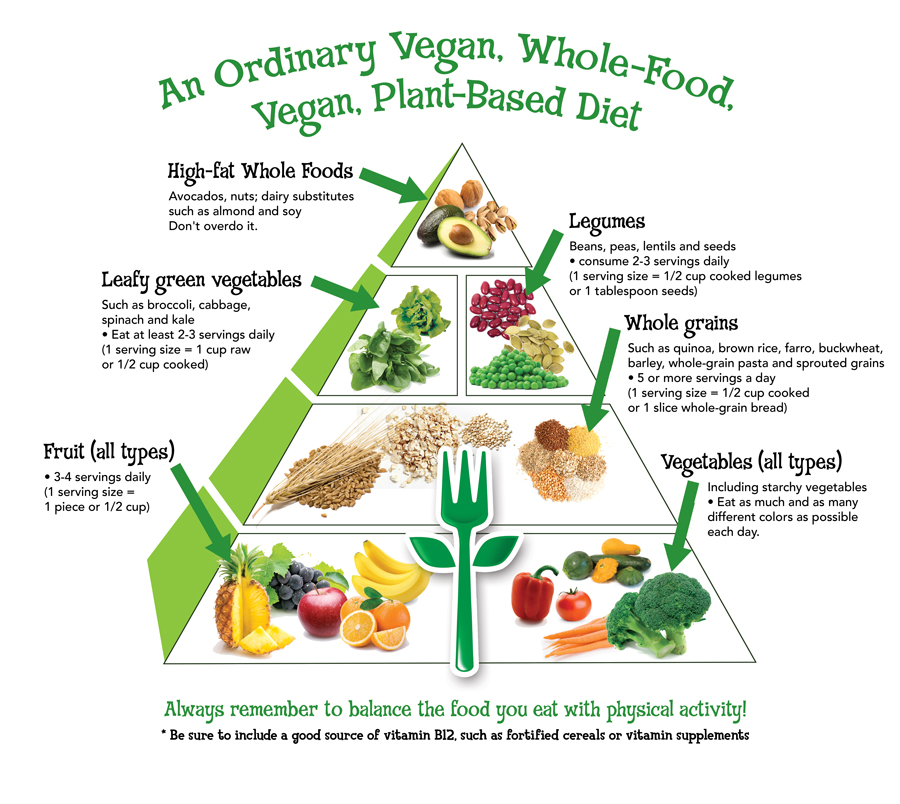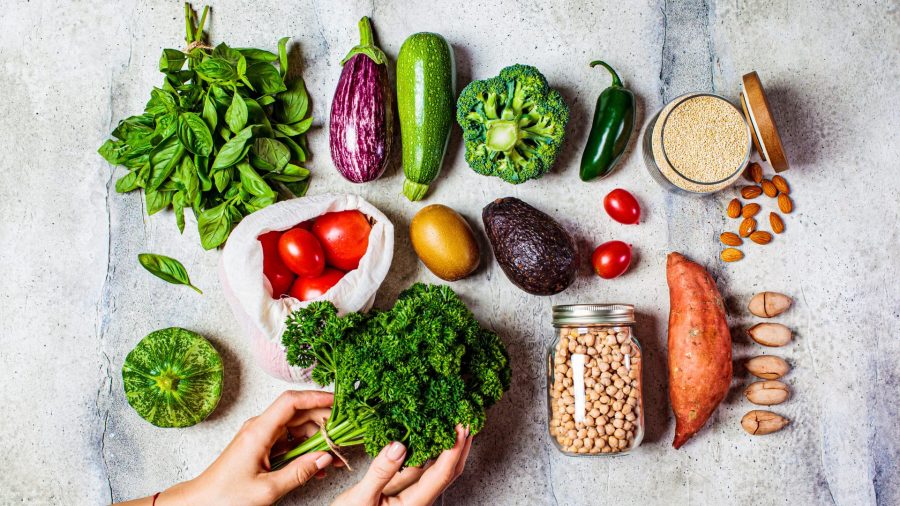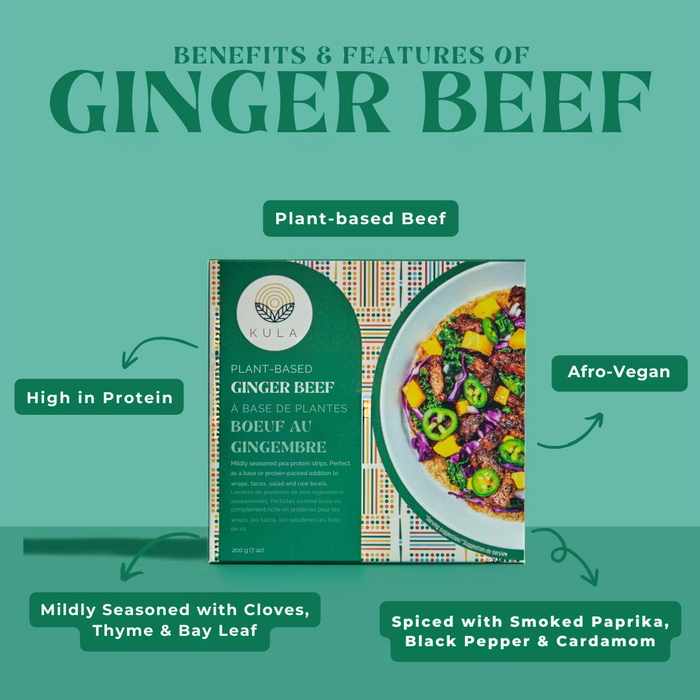Plant Based Beef vs. Traditional Meat: Which Is Better for the Environment?
Plant Based Beef vs. Traditional Meat: Which Is Better for the Environment?
Blog Article
Everything About Healthy Food: Benefits of Embracing Plant Based Options
The conversation bordering plant-based diet plans has acquired considerable attention in recent times. Several people are checking out the prospective health benefits, dietary advantages, and environmental influences related to these nutritional options. As people come to be a lot more knowledgeable about their food's influence on health and sustainability, concerns occur concerning the usefulness of embracing such a lifestyle. What details modifications can one expect, and just how might these options reshape not just personal health and wellness but additionally the planet's future?
Understanding Plant-Based Diet Plans
Several people link plant-based diet plans mainly with vegetarianism or veganism, these diet plans can encompass a large range of eating patterns that focus on whole, minimally refined plant foods. Such diets usually include fruits, veggies, entire grains, nuts, seeds, and vegetables, while getting rid of or restricting animal products. This adaptability allows people to tailor their nutritional selections according to personal preferences and dietary demands. Some may embrace a largely plant-based diet while still sometimes consuming meat or milk, often referred to as a flexitarian technique. The emphasis remains on incorporating more plant foods, which can cause a varied array of flavors and meals. Comprehending these numerous analyses of plant-based consuming is important for appreciating its access and charm in modern food society.
Health Advantages of Plant-Based Foods
The health and wellness advantages of plant-based foods are substantial, supplying a nutrient thickness benefit that sustains total health. Study indicates that these foods can improve heart health and play a necessary function in efficient weight administration. By integrating a lot more plant-based alternatives, people might improve their dietary choices and promote long-term health.
Nutrient Thickness Benefit
Nutrient thickness plays a necessary function in the health and wellness benefits of plant-based foods, making them a compelling selection for those looking for a well balanced diet plan. Plant-based foods, such as fruits, vegetables, legumes, nuts, and entire grains, are usually abundant in vital vitamins, minerals, and antioxidants while being lower in calories. This high nutrient thickness enables individuals to consume less calories while still satisfying their nutritional needs. In addition, these foods are loaded with dietary fiber, advertising digestive system health and wellness and helping in weight monitoring. By integrating nutrient-dense plant-based choices, consumers can boost their general health, sustain their immune systems, and reduce the threat of chronic diseases. Inevitably, the nutrient density of plant-based foods underscores their importance in a health-conscious way of living.
Heart Wellness Improvement

Weight Management Assistance
In addition to advertising heart health and wellness, a plant-based diet can substantially aid in weight monitoring. This dietary strategy highlights entire foods such as fruits, vegetables, beans, nuts, and whole grains, which are usually lower in calories and greater in fiber compared to animal-based products. The high fiber web content assists increase satiety, decreasing total calorie intake. Plant-based diets are typically abundant in important nutrients while low in harmful fats, making it simpler to preserve a healthy and balanced weight. Research indicates that individuals that take on a plant-based lifestyle have a tendency to have reduced body mass indexes (BMIs) and experience even more successful weight reduction contrasted to those that eat meat-heavy diets. Accepting plant-based alternatives is a critical selection for effective weight management.
Nutritional Value of Plant-Based Ingredients
Plant-based components are rich in necessary nutrients, using a varied selection of vitamins, minerals, and anti-oxidants that add to total health and wellness. A comparison of protein sources reveals that while animal products are frequently deemed exceptional, numerous plant-based choices offer sufficient protein and other beneficial substances. Recognizing the dietary great post to read value of these components can help individuals make informed dietary choices.
Crucial Nutrients in Plants
Nutrient-rich active ingredients located in plants use a diverse range of important vitamins and minerals that add substantially to total health and wellness. These ingredients are abundant in vitamins A, C, and K, which sustain immune function, vision, and blood clot, specifically. On top of that, plants provide vital minerals such as calcium, potassium, and magnesium, vital for heart health and wellness, muscle feature, and bone strength. The visibility of fiber in plant-based foods aids digestion and advertises a healthy and balanced gut microbiome. Anti-oxidants, discovered perfectly in fruits and veggies, assistance combat oxidative stress and anxiety and decrease swelling. Several plant foods are low in calories yet high in nutrients, making them an exceptional choice for those seeking to keep a healthy weight while making sure ideal nutrient intake.

Contrasting Protein Sources
Protein resources differ significantly in their nutritional accounts, with plant-based active ingredients using distinct advantages. Unlike pet healthy proteins, which typically include saturated fats and cholesterol, plant healthy proteins have a tendency to be lower in these unhealthy parts. Legumes, nuts, seeds, and entire grains are rich in important amino acids, fiber, vitamins, and minerals. For example, lentils offer high protein web content together with significant iron and folate, while quinoa is a full protein, offering all 9 vital amino acids. Additionally, plant-based healthy proteins are frequently come with by antioxidants and phytochemicals that sustain overall wellness. The shift to plant-based healthy protein sources not only boosts nutritional consumption but additionally aligns with lasting dietary methods, reducing environmental influence and promoting long-lasting health benefits.
Ecological Impact of Plant-Based Eating
As recognition of climate adjustment expands, numerous people are exploring sustainable nutritional selections that can significantly decrease their environmental footprint. Plant-based consuming has actually become a considerable factor to reducing greenhouse gas discharges, which are mostly related to livestock production. The growing of fruits, grains, beans, and vegetables generally calls for fewer resources, such as water and land, compared to animal farming. Furthermore, plant-based diet regimens can lead to decreased deforestation, as less land is needed for grazing livestock or growing animal feed. By moving in the direction of plant-based alternatives, customers can support biodiversity and promote healthier ecological communities. On the whole, embracing plant-based eating not only advantages individual wellness but also represents a vital step towards ecological sustainability and preservation initiatives.
Conquering Common Misconceptions
While lots of people acknowledge the benefits of a plant-based diet, several misunderstandings frequently deter them from totally accepting this way of life. A common idea is that plant-based diet regimens do not have adequate protein; however, numerous plant resources, such as beans, nuts, and tofu, supply sufficient protein. Additionally, some think that this diet plan is costly, when actually, staples like beans, rice, and seasonal veggies can be fairly budget friendly. An additional mistaken belief is that plant-based eating is overly limiting, whereas it really supplies a varied array of tastes and foods. Lots of worry that a plant-based diet regimen may lead to shortages, yet with proper preparation, individuals can get all required nutrients, consisting of vitamins and minerals, while appreciating a broad selection of delicious dishes.
Tips for Transitioning to a Plant-Based Way of life
Making the change to a plant-based lifestyle can be an improving experience, though it frequently calls for some assistance to browse the initial modifications. People are encouraged to start slowly, including more fruits, vegetables, vegetables, and entire grains right into their meals while decreasing meat and dairy products intake. Dish planning is vital; preparing an once a week food selection can help relieve the modification and protect against final unhealthy choices. Checking out cooking approaches and brand-new read the article dishes can also preserve and improve the experience exhilaration about plant-based eating. Furthermore, signing up with support system or areas can give inspiration and share valuable tips. Finally, staying informed about nutrition guarantees balanced dishes, preventing deficiencies while fostering a healthy, rewarding plant-based lifestyle.
Delicious Plant-Based Dish Ideas
Checking out scrumptious plant-based meal concepts can motivate individuals to accept an extra nutritious diet plan. One preferred alternative is a hearty quinoa salad, featuring cherry tomatoes, cucumber, and a vibrant lemon-tahini dressing. Another favorite is a full-flavored lentil stew, loaded with carrots, celery, and fragrant herbs, best for a comforting dinner. For breakfast, overnight oats made with almond milk, chia seeds, and covered with fresh berries give a nourishing start to the day. Furthermore, a lively veggie stir-fry with tofu and a range of basics colorful veggies can be a quick yet pleasing dish. Finally, luscious avocado toast on whole-grain bread, sprinkled with seeds and spices, provides a basic yet delicious treat. These dishes display the range and splendor of plant-based consuming.

Frequently Asked Inquiries
Can a Plant-Based Diet Plan Provide Sufficient Protein?
The question of whether a plant-based diet regimen can offer enough healthy protein prevails. Countless resources, including vegetables, nuts, seeds, and whole grains, can fulfill protein requires successfully, supporting a well balanced and nutritious diet regimen for individuals.
Are Plant-Based Diet Regimens Suitable for Kid?
The suitability of plant-based diet regimens for children relies on careful preparation. Sufficient nutrients have to be ensured, consisting of healthy proteins, minerals, and vitamins. With correct guidance, such diet plans can sustain healthy development and growth in kids.
Just how Do I Eat in restaurants on a Plant-Based Diet plan?
Eating out on a plant-based diet includes looking for dining establishments with diverse menus, requesting for modifications, and checking out vegan-friendly alternatives. Preparation ahead and interacting nutritional choices can enhance the dining experience while preserving nutritional choices.
What Prevail Irritants in Plant-Based Foods?
Usual irritants in plant-based foods include soy, gluten, nuts, and seeds - Gluten Free BBQ Sauce. People following a plant-based diet ought to be mindful of these irritants and review labels meticulously to avoid unfavorable responses and assure risk-free intake
Can Plant-Based Diets Assist With Weight Loss?
Study suggests that embracing a plant-based diet regimen might promote weight reduction because of its usually reduced calorie thickness and greater fiber material. This combination can improve satiety, assisting individuals manage their caloric consumption properly. Many individuals link plant-based diet regimens generally with vegetarianism or veganism, these diet regimens can include a large variety of eating patterns that prioritize entire, minimally refined plant foods. Nutrient density plays a vital function in the health benefits of plant-based foods, making them an engaging option for those seeking a balanced diet regimen. Plant-based diet regimens have actually been shown to considerably improve heart wellness, as they usually have aspects that support cardio feature. In addition to advertising heart health and wellness, a plant-based diet can substantially help in weight administration. A common idea is that plant-based diet plans lack enough protein; however, countless plant sources, such as legumes, nuts, and tofu, give adequate protein.
Report this page